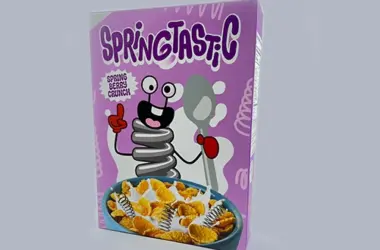In today’s world, sustainability has become an essential concern for both consumers and businesses. The fast food industry, particularly, has been under scrutiny for its impact on the environment, especially in terms of packaging waste. One solution that has gained popularity in recent years is the use of compostable burger boxes. These boxes are marketed as an eco-friendly alternative to traditional plastic and Styrofoam packaging, promising to reduce environmental harm. But are they truly effective in achieving their sustainability goals? This article explores the effectiveness of compostable burger boxes by examining their environmental impact, composting processes, and real-world performance.
Understanding Compostable Burger Boxes
Compostable burger boxes are made from materials designed to break down naturally in a composting environment. Unlike plastic or Styrofoam, which can take hundreds of years to decompose, compostable materials are intended to degrade within a few months when exposed to the right conditions. The most common materials used for these boxes include plant-based fibers like sugarcane, bamboo, and recycled paper.
However, not all compostable materials are created equal. The specific composition of the box, as well as the conditions under which it breaks down, can vary significantly. For example, boxes made from sugarcane or bamboo fibers are often marketed as biodegradable, but they might require industrial composting facilities to break down effectively. In contrast, some boxes labeled as compostable may not decompose as quickly or completely when exposed to natural conditions, leading to potential environmental issues.
In theory, compostable burger boxes are an ideal solution for reducing waste. They are designed to replace plastic and foam containers, which contribute to long-term pollution in landfills and oceans. However, the effectiveness of these boxes depends on a range of factors, including the types of materials used, the proper disposal process, and consumer awareness.
The Environmental Benefits of Compostable Burger Boxes
One of the primary reasons for the rise of compostable burger boxes is their potential to reduce the environmental impact of packaging waste. Traditional plastic and Styrofoam containers are notorious for their negative effects on the planet. They take hundreds of years to break down and often end up in landfills or oceans, causing harm to wildlife and ecosystems.
Compostable boxes, on the other hand, are designed to break down into organic matter that can be used to enrich soil. This process not only helps to reduce waste but also contributes to a circular economy by turning waste into a resource. When composted properly, the materials in these boxes return valuable nutrients to the earth, making them a sustainable option for food packaging.
However, the environmental benefits of compostable burger boxes are contingent on proper disposal. In order to achieve their full potential, these boxes must be composted in the right conditions. Industrial composting facilities are equipped to handle large quantities of organic waste and provide the heat, moisture, and aeration necessary for decomposition. Unfortunately, many compostable products end up in landfills, where they do not break down as effectively due to the lack of these ideal conditions.
In addition, not all compostable boxes are created from renewable resources. Some may still rely on chemicals or synthetic materials that hinder their environmental performance. Therefore, while the shift to compostable packaging is a step in the right direction, it is essential to ensure that the materials used are truly sustainable.
The Importance of Industrial Composting
The composting process is central to the effectiveness of compostable burger boxes. To break down into organic matter, these boxes need to be exposed to specific conditions, including the right temperature, humidity, and oxygen levels. Industrial composting facilities are designed to provide these conditions, allowing compostable products to decompose efficiently and completely.
In an industrial composting facility, organic materials are broken down by microorganisms such as bacteria, fungi, and worms. These microorganisms feed on the carbon and nitrogen in the materials, causing them to decompose into nutrient-rich compost. This compost can then be used to enrich soil and support plant growth.
However, not all compostable burger boxes are suitable for home composting. Many products labeled as compostable require industrial composting facilities to break down properly. These facilities are not always readily accessible to consumers, and many areas lack the infrastructure to handle large amounts of compostable waste. As a result, even if a compostable burger box is technically biodegradable, it may still end up in a landfill if it is not properly disposed of.
The lack of widespread industrial composting facilities means that the effectiveness of compostable packaging depends heavily on local waste management systems. For the full environmental benefits of compostable burger boxes to be realized, governments and businesses must work together to improve composting infrastructure and raise awareness about proper disposal practices.
Challenges with Consumer Awareness and Behavior
Despite the growing popularity of compostable burger boxes, there is a significant gap in consumer awareness and behavior when it comes to proper disposal. Many people assume that compostable products can be thrown away with regular waste or placed in home compost bins. However, this is not always the case.
For compostable burger boxes to have a meaningful impact, consumers must understand how to dispose of them correctly. In areas without access to industrial composting facilities, these boxes may not break down as intended and could contribute to landfill waste. Additionally, some compostable boxes may be coated with non-compostable chemicals or inks that hinder the decomposition process.
Education is key to addressing this issue. By raising awareness about the importance of proper disposal and the limitations of home composting, businesses and governments can help ensure that compostable burger boxes are disposed of in the most effective way. Without this awareness, even the most eco-friendly packaging solutions can fall short of their sustainability goals.
Real-World Performance: Are They Truly Effective?
While compostable burger boxes may sound like an ideal solution for reducing packaging waste, their real-world performance is not always as effective as advertised. In theory, they are an eco-friendly alternative to plastic and Styrofoam. However, in practice, there are several challenges that can limit their effectiveness.
One major issue is the inconsistency of compostable materials. Not all products labeled as compostable are created equal, and some may not decompose as quickly or completely as expected. Additionally, the environmental benefits of these boxes are contingent on their proper disposal. In regions without access to industrial composting facilities, these boxes may still contribute to landfill waste.
Another challenge is the potential contamination of compostable materials. If compostable burger boxes are mixed with non-compostable waste, they can slow down the decomposition process or even introduce harmful substances into the compost. This can undermine the effectiveness of composting efforts and reduce the overall environmental impact of the packaging.
While compostable burger boxes have the potential to reduce waste, their real-world effectiveness depends on a range of factors, including the quality of the materials used, the availability of composting infrastructure, and consumer behavior.
The Role of Packaging in Sustainability
Packaging plays a crucial role in the sustainability of food products, particularly in the fast food industry. The shift towards compostable burger boxes is part of a larger trend toward more eco-friendly packaging solutions. However, packaging is only one piece of the sustainability puzzle.
In addition to adopting compostable materials, businesses must also focus on reducing the overall amount of packaging used. This can be achieved through measures such as optimizing portion sizes, using reusable containers, or reducing unnecessary packaging altogether. By taking a holistic approach to sustainability, businesses can further reduce their environmental impact and promote a more sustainable food system.
Furthermore, consumers also have a role to play in supporting sustainable packaging practices. By choosing businesses that prioritize eco-friendly packaging and properly disposing of waste, consumers can contribute to a more sustainable future.
The Future of Compostable Burger Boxes
As the demand for sustainable packaging continues to grow, the future of compostable burger boxes looks promising. Advances in materials science may lead to the development of even more effective and eco-friendly packaging solutions. For example, some companies are exploring the use of biodegradable plastics or alternative fibers that decompose more quickly and completely.
In addition, improvements in composting infrastructure and consumer education could make compostable burger boxes more effective in reducing waste. By increasing access to industrial composting facilities and raising awareness about proper disposal, the environmental impact of compostable packaging can be minimized.
However, it is important to remember that compostable packaging is just one part of the solution. A more sustainable food system will require a combination of efforts, including reducing packaging waste, promoting recycling, and encouraging responsible consumption. As businesses, governments, and consumers work together, the future of sustainable packaging can become a reality.
Conclusion
Compostable burger boxes offer a promising solution to the growing problem of packaging waste. While they have the potential to reduce environmental impact, their effectiveness depends on several factors, including the quality of materials, proper disposal methods, and consumer behavior. As the demand for eco-friendly packaging grows, it is essential for businesses and consumers to work together to ensure that compostable products are used and disposed of correctly. With the right infrastructure and awareness, compostable burger boxes can be an important step toward a more sustainable future.









